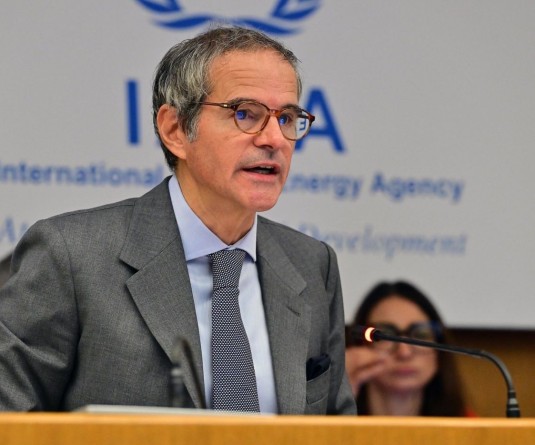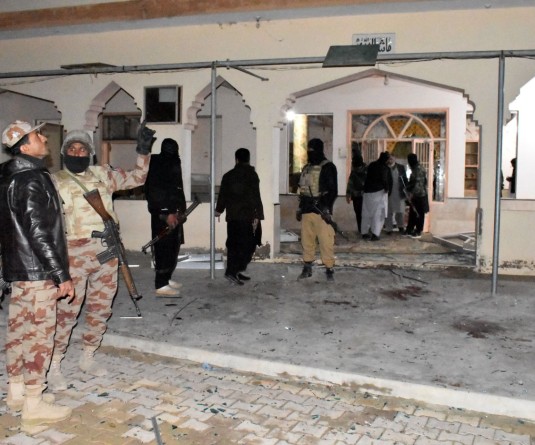
MADRID, May 18 (AFP): Protesters fuming over Spain's economic crisis and sky-high jobless rate camped in Madrid and across the country Wednesday to vent their anger ahead of weekend local elections.
More than 1,000 demonstrators turned out in Madrid's central Puerta de Sol square on Tuesday night and knots of protesters remained the following morning, some vowing to stay until the vote. Others rallied in scores of cities including Barcelona, Valencia, Zaragoza and Palma de Mallorca, responding to calls on online social networks, television coverage, and the Real Democracy Now protest organisation.
"We are tired of the unemployment, the corruption of politicians. It is always the same thing. I have no job and I don't see how I can get one any time soon," said 25-year-old Jordi Perez in Madrid. "They have to know how we feel," Perez said.
Spain's jobless rate hit 21.19 percent in the first quarter of this year, the highest in the industrialised world. For the young the situation is more desperate: 44.6 percent unemployment for under-25s in February. Carrying placards reading "Make the guilty pay for the crisis" and chanting "They call this democracy but it is not", the protesters hope to be heard in regional and municipal elections Sunday. Mostly peaceful, the protests began May 15, lamenting Spain's economic crisis, politicians in general, and corruption. They seem to have caught political parties by surprise.
Prime Minister Jose Luis Rodriguez Zapatero's ruling Socialist Party was "alarmed" by the protesters, fearing them to be disaffected left-wing supporters who would abandon the party at the ballot box, the leading daily El Pais said. Weekend polls forecast devastating losses for the Socialists as voters punish them for the government's handling of the economic crisis, including painful austerity measures.
Mariano Rajoy, leader of the conservative Popular Party, which stands to make huge gains in the elections, said he could understand the protesters' motives. The youth unemployment rate was "terrible," and unacceptable in a country like Spain, he said.
"Zapatero made a mistake. First he did not see the crisis, then he was wrong on the measures and then he spent money we did not have. And he has put us in a very difficult situation," Rajoy said. "I think things can change and sincerely I am in politics to try to do so," he said.
Polls published in the centre-left El Pais and the conservative El Mundo tipped broad losses for the Socialists including in strongholds such as Barcelona, Seville and the Castille-La Mancha region. The Socialist Party is "on the edge of a catastrophe," El Mundo predicted. Zapatero announced on April 2 that he would not stand for a third term in general elections scheduled for March 2012. Some in the party believe a new leader could halt the Socialists' plummeting popularity.
But while the Socialist Party touts its tough economic reforms internationally as a sign that it is repairing Spain's finances, analysts say the party will pay the price at the polls.
Spanish economic activity picked up the pace in the first quarter of 2011 with growth of 0.8 percent from a year earlier, boosted by rising exports, official data showed Wednesday. But domestic demand was weak, buckling under the heavy jobless rate, the National Statistics Institute report showed.
More than 1,000 demonstrators turned out in Madrid's central Puerta de Sol square on Tuesday night and knots of protesters remained the following morning, some vowing to stay until the vote. Others rallied in scores of cities including Barcelona, Valencia, Zaragoza and Palma de Mallorca, responding to calls on online social networks, television coverage, and the Real Democracy Now protest organisation.
"We are tired of the unemployment, the corruption of politicians. It is always the same thing. I have no job and I don't see how I can get one any time soon," said 25-year-old Jordi Perez in Madrid. "They have to know how we feel," Perez said.
Spain's jobless rate hit 21.19 percent in the first quarter of this year, the highest in the industrialised world. For the young the situation is more desperate: 44.6 percent unemployment for under-25s in February. Carrying placards reading "Make the guilty pay for the crisis" and chanting "They call this democracy but it is not", the protesters hope to be heard in regional and municipal elections Sunday. Mostly peaceful, the protests began May 15, lamenting Spain's economic crisis, politicians in general, and corruption. They seem to have caught political parties by surprise.
Prime Minister Jose Luis Rodriguez Zapatero's ruling Socialist Party was "alarmed" by the protesters, fearing them to be disaffected left-wing supporters who would abandon the party at the ballot box, the leading daily El Pais said. Weekend polls forecast devastating losses for the Socialists as voters punish them for the government's handling of the economic crisis, including painful austerity measures.
Mariano Rajoy, leader of the conservative Popular Party, which stands to make huge gains in the elections, said he could understand the protesters' motives. The youth unemployment rate was "terrible," and unacceptable in a country like Spain, he said.
"Zapatero made a mistake. First he did not see the crisis, then he was wrong on the measures and then he spent money we did not have. And he has put us in a very difficult situation," Rajoy said. "I think things can change and sincerely I am in politics to try to do so," he said.
Polls published in the centre-left El Pais and the conservative El Mundo tipped broad losses for the Socialists including in strongholds such as Barcelona, Seville and the Castille-La Mancha region. The Socialist Party is "on the edge of a catastrophe," El Mundo predicted. Zapatero announced on April 2 that he would not stand for a third term in general elections scheduled for March 2012. Some in the party believe a new leader could halt the Socialists' plummeting popularity.
But while the Socialist Party touts its tough economic reforms internationally as a sign that it is repairing Spain's finances, analysts say the party will pay the price at the polls.
Spanish economic activity picked up the pace in the first quarter of 2011 with growth of 0.8 percent from a year earlier, boosted by rising exports, official data showed Wednesday. But domestic demand was weak, buckling under the heavy jobless rate, the National Statistics Institute report showed.






